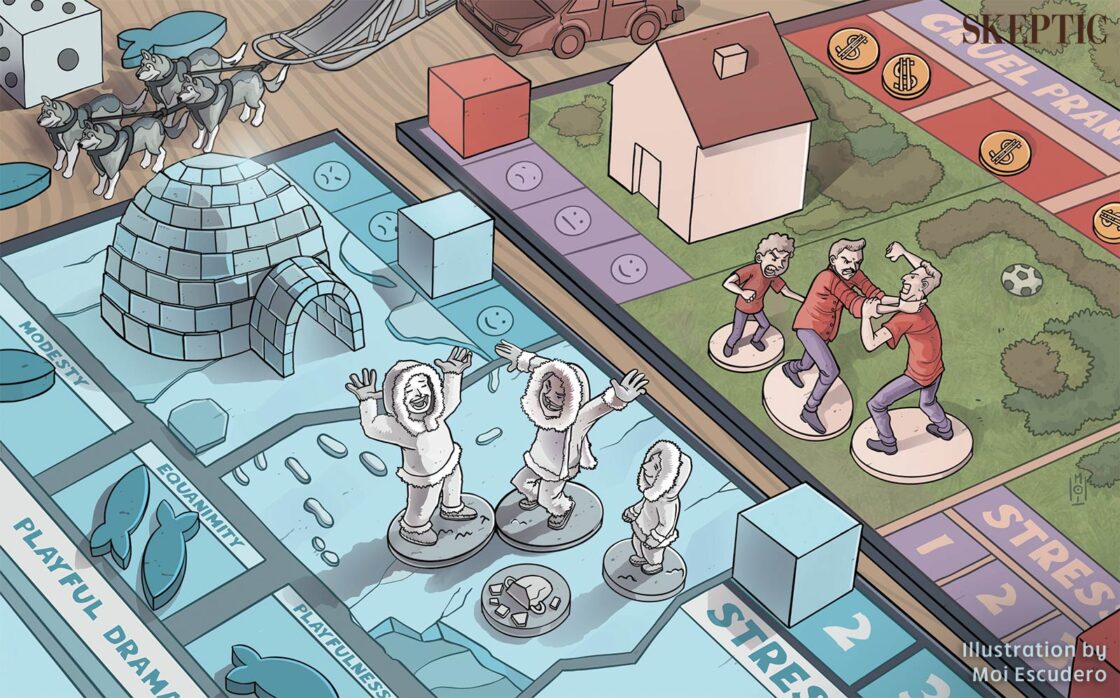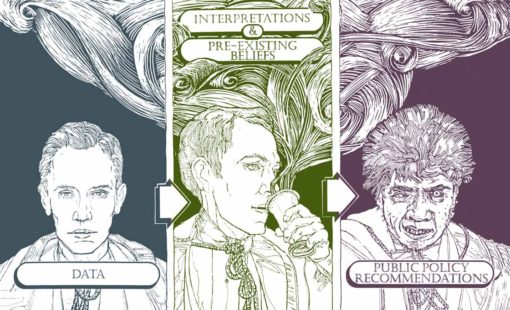cognitive psychology

In the controversies surrounding campaigns to ban books from school libraries and publishers’ new policy of removing offensive words from classic books, most commenters focus on the nature of the books’ content and whether it’s appropriate for children of a certain age. In contrast, this essay focuses on the nature of stories and how concerned parents should think about them in the context of their children’s moral and social development.

In episode 212, Michael Shermer speaks with Gale Sinatra and Barbara Hofer about the key psychological explanations for science denial and doubt that can help provide a means for improving scientific literacy and understanding — critically important at a time when denial has become deadly.
In episode 212, Michael Shermer speaks with Gale Sinatra and Barbara Hofer about the key psychological explanations for science denial and doubt that can help provide a means for improving scientific literacy and understanding — critically important at a time when denial has become deadly.
In Science Salon # 89 Michael Shermer speaks with Richard Dawkins about his new book Outgrowing God. Dawkins explains how the natural world arose without a designer and challenges head-on some of the most basic assumptions made by the world’s religions. PLUS: Is the statement “We are living in a post-truth world” true? If your answer is “yes” then the answer is “no” because you’ve just evaluated the statement in an evidentiary manner, so evidence still matters and facts still…

Is the statement “We are living in a post-truth world” true? If your answer is “yes” then the answer is “no” because you’ve just evaluated the statement in an evidentiary manner, so evidence still matters and facts still matter. Harvard psychologist Steven Pinker explains why were are not living in a post-truth world in this deeply insightful cover story from Skeptic magazine 24.3 (2019).

As promised last week, this week, we present anthropologist Dr. Vincent M. Sarich’s defense of the bell curve. See last week’s eSkeptic for the critique of the bell curve by Diane Halpern.

As promised last week, this week, we present anthropologist Dr. Vincent M. Sarich’s defense of the bell curve. See last week’s eSkeptic for the critique of the bell curve by Diane Halpern.

In light of recent events in which Charles Murray has been booed off stage at two academic institutions for lecturing on ideas from his book The Bell Curve: Intelligence and Class Structure in American Life, we think it’s worth revisiting an article from Skeptic magazine from 1995 in which cognitive psychologist Diane Halpern critiques the book.
In light of recent events in which Charles Murray has been booed off stage at two academic institutions for lecturing on ideas from his book The Bell Curve: Intelligence and Class Structure in American Life, we think it’s worth revisiting an article from Skeptic magazine from 1995 in which cognitive psychologist Diane Halpern’s critiques the book.
In Do Zombies Dream of Undead Sheep?, Dr. Bradley Voytek, a professor of computational cognitive science and neuroscience at the University of California, San Diego, applies neuro-know-how to dissect the puzzle of what has happened to the zombie brain to make the undead act differently than their human prey.
In this lecture, based on his book, U.C. San Diego cognitive psychologist Benjamin K. Bergen draws together research in psychology, linguistics, and neuroscience to offer a new theory of how our minds make meaning.













